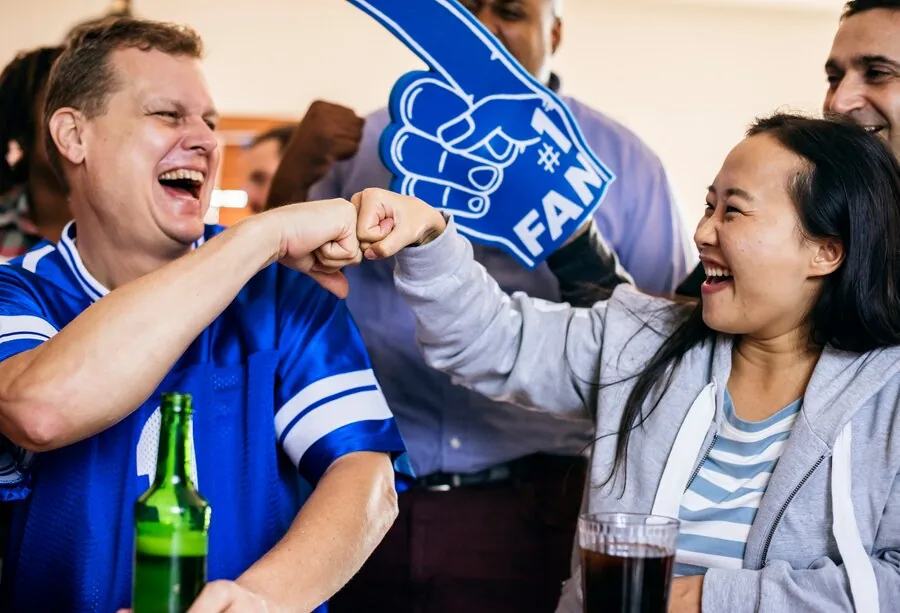Sports betting remains unavailable to Missouri residents as of May 2025, despite ongoing legislative efforts. At Revolver News This article examines the current status of sports betting legislation in Missouri, explores the timeline for potential legalization, and provides insights into what Missouri bettors can expect once sports wagering becomes legal in the Show-Me State.
Introduction to Sports Betting in Missouri

Missouri’s journey toward legal sports betting has been marked by multiple legislative attempts and setbacks. While neighboring states like Kansas, Illinois, and Arkansas have legalized sports wagering, Missouri remains among the states where sports betting is not yet permitted. The lack of legal sports betting options means Missouri residents either travel to neighboring states to place bets or use offshore betting sites that operate outside U.S. regulations.
The push for sports betting legalization in Missouri has gained momentum in recent years, with support from professional sports teams, potential sportsbook operators, and lawmakers who see it as a source of tax revenue. However, various obstacles have prevented bills from crossing the finish line. Other than that if u want to how to become a sports agent in we have got you covered here too.
Missouri Sports Betting Breakdown

Current Legal Status of Sports Betting in Missouri
As of May 2025, sports betting is not legal in Missouri. The state has not authorized any form of sports wagering, whether online or at physical locations. This means that Missouri bettors cannot legally place wagers on sporting events within state borders.
The only forms of gambling currently legal in Missouri include:
- State lottery
- Riverboat casinos
- Charitable gaming
- Daily fantasy sports (legalized in 2016)
- Pari-mutuel wagering on horse racing (though no active tracks operate in the state)
History of Missouri Sports Betting Legislation
Missouri has seen multiple sports betting bills introduced in recent years:
- 2018: Following the Supreme Court’s decision to strike down PASPA (Professional and Amateur Sports Protection Act), Missouri lawmakers began drafting sports betting legislation.
- 2019-2020: Several bills were introduced but failed to gain sufficient support.
- 2021: House Bill 1364 and Senate Bill 18 were introduced, proposing frameworks for sports betting, but neither passed.
- 2022: House Bill 2502 and Senate Bill 1061 made progress but ultimately stalled.
- 2023: Senate Bill 30 and House Bill 556 were introduced, with the latter passing the House but failing in the Senate.
- 2024: House Bill 2331 and Senate Bill 852 were introduced with renewed optimism but faced opposition from video lottery terminal (VLT) proponents.
- 2025: Latest legislative attempts continue, with new bills introduced in the current session.
Status of Missouri Sports Betting in May 2025

Recent Legislative Developments
The most recent legislative session has seen renewed efforts to legalize sports betting in Missouri. Lawmakers have introduced bills that would authorize both retail and online sports betting, with licenses available to the state’s 13 casino operators and Missouri’s professional sports teams.
Key features of current legislative proposals include:
- Authorization for both retail and mobile sports betting
- Licensing for the state’s existing casino operators
- Additional licenses for professional sports teams
- Tax rates ranging from 10% to 15% on sports betting revenue
- Regulatory oversight by the Missouri Gaming Commission
- Provisions for responsible gambling measures
Despite these efforts, disagreements over tax rates, license fees, and the inclusion of video lottery terminals have continued to create obstacles to passage.
Primary Obstacles to Legalization
Several factors have complicated Missouri’s path to sports betting legalization:
- Video Lottery Terminal Debate: Some lawmakers have insisted on including VLTs in gambling expansion bills, while others oppose this inclusion, creating a legislative impasse.
- Tax Rate Disagreements: Determining the appropriate tax rate for sports betting revenue has been contentious, with proposals ranging from 6.75% to 21%.
- License Fee Structure: Debates over how much operators should pay for sports betting licenses have delayed consensus.
- Responsible Gambling Concerns: Ensuring proper safeguards for problem gambling has been a point of discussion.
- Competition from Neighboring States: With Illinois, Arkansas, and Kansas already offering legal sports betting, Missouri faces pressure to create competitive regulations.
When Will Online Sports Betting Go Live in Missouri?

Projected Timeline
Based on current legislative progress and industry analysis, experts project the following timeline for Missouri sports betting:
- Legislative Approval: If a bill passes in the current session, it could be signed into law by summer 2025.
- Regulatory Framework Development: The Missouri Gaming Commission would need 6-9 months to establish regulations, application processes, and licensing procedures.
- Operator Application and Approval: Sportsbook operators would submit applications, undergo background checks, and receive approval, likely taking 2-3 months.
- Platform Testing and Launch: Final testing and verification would precede public launch, requiring 1-2 months.
Under this optimistic scenario, Missouri sports betting could go live in early to mid-2026. However, if legislation fails to pass in the current session, the timeline would shift to 2027 or beyond.
Expert Opinions
Industry analysts have weighed in on Missouri’s sports betting prospects:
Dr. James Roberts, gaming industry analyst at the University of Missouri, states: “Missouri has all the ingredients for a successful sports betting market—professional sports teams with engaged fan bases, existing casino infrastructure, and clear public support. The primary hurdle remains political rather than practical.”
According to a recent survey by the American Gaming Association, 65% of Missouri residents support legalizing sports betting, indicating strong public backing for legislation.
Sports Betting Sites That Could Launch in Missouri

Major Operators Eyeing the Missouri Market
When sports betting becomes legal in Missouri, several major operators are expected to enter the market:
- DraftKings: Already operating daily fantasy sports in Missouri, DraftKings has expressed strong interest in offering sports betting.
- FanDuel: Another daily fantasy sports provider positioned to quickly enter the Missouri market.
- Caesars Sportsbook: With existing casino operations in Missouri, Caesars has a natural pathway to sports betting.
- BetMGM: Likely to seek partnership with Missouri casinos to establish presence.
- ESPN Bet: The newer entrant in the sports betting space has indicated interest in Missouri.
- Bet365: This international operator has been expanding its U.S. presence and would likely target Missouri.
- PointsBet: Known for its unique betting options, PointsBet would add diversity to Missouri’s market.
Potential Partnerships with Missouri Casinos
Missouri’s 13 riverboat casinos would likely partner with sportsbook operators:
- Ameristar Casino (St. Charles): Could partner with Barstool Sportsbook
- River City Casino (St. Louis): Potential partner for BetMGM
- Harrah’s Kansas City: Natural fit for Caesars Sportsbook
- Hollywood Casino (St. Louis): Likely to work with Penn Entertainment’s platforms
- Isle of Capri (Boonville): Potential Bally Bet partnership
- Mark Twain Casino (La Grange): Smaller operator seeking partnership
- St. Jo Frontier Casino (St. Joseph): Exploring operator partnerships
- Argosy Casino (Riverside): Considering multiple sportsbook options
Professional Sports Team Involvement
Missouri’s professional sports teams have been vocal advocates for sports betting legalization and would likely partner with major sportsbooks:
- Kansas City Chiefs (NFL): Potential partnership with DraftKings
- St. Louis Cardinals (MLB): Expressed interest in FanDuel partnership
- St. Louis Blues (NHL): Could partner with Caesars Sportsbook
- Sporting Kansas City (MLS): Exploring sports betting partnerships
Latest Missouri Sports Betting Updates
Legislative Progress in 2025
The 2025 legislative session has seen renewed momentum for sports betting legislation:
- House Bill 2567, introduced in January 2025, passed the House Gaming Committee with bipartisan support.
- Senate Bill 983 remains in committee discussion, with key amendments being negotiated.
- A coalition of Missouri professional sports teams has increased lobbying efforts, submitting joint testimony in support of legislation.
- The Missouri Gaming Commission has begun preliminary work on regulation frameworks in anticipation of possible legalization.
Stakeholder Positions
Various stakeholders have taken positions on sports betting legislation:
- Casino Operators: Support legalization with licensing priority for existing gaming facilities.
- Professional Sports Teams: Advocate for direct access to licenses and revenue sharing.
- Problem Gambling Organizations: Call for dedicated funds for gambling addiction services.
- Missouri Lottery: Seeks involvement in sports betting administration.
- Education Advocates: Support directing tax revenue to education funding.
Where Will I Be Able to Bet on MO Sportsbooks?

Physical Locations
When sports betting is legalized in Missouri, bettors will likely have access to retail sportsbooks at:
- The state’s 13 riverboat casinos
- Professional sports venues (stadiums and arenas)
- Potentially OTB (off-track betting) facilities
Mobile and Online Options
Mobile sports betting is expected to be included in any successful legislation, allowing bettors to wager from anywhere within Missouri state lines through:
- Dedicated sportsbook apps
- Web-based platforms
- Partnership programs with existing casinos and sports teams
Based on other states’ experiences, mobile betting typically accounts for 80-90% of all sports wagers, making it a crucial component of any successful sports betting program.
What Missouri Sportsbooks Are Legal?
Currently, no sportsbooks are legal in Missouri. However, once legislation passes, the Missouri Gaming Commission will establish a licensing process for operators.
Licensing Process
When sports betting is legalized, potential operators will need to:
- Apply for licenses with the Missouri Gaming Commission
- Pay licensing fees (expected to be between $50,000-$500,000 based on current proposals)
- Implement responsible gambling protocols
- Establish geofencing technology to ensure bets are placed within state lines
- Submit to regular audits and compliance checks
Responsible Gambling Measures
Legal Missouri sportsbooks will be required to implement responsible gambling features:
- Self-exclusion options
- Deposit and betting limits
- Timeout capabilities
- Problem gambling resources
- Age verification processes
Missouri Sports Betting Legislation

Key Components of Current Bills
Current sports betting bills in Missouri typically include:
- Tax Structure: Proposed rates between 10-15% of adjusted gross revenue
- License Fees: Initial fees ranging from $100,000 to $500,000
- Mobile Betting: Authorization for statewide mobile wagering
- Eligible Entities: Casino operators and professional sports teams
- Regulatory Authority: Missouri Gaming Commission oversight
- Responsible Gambling: Funding for problem gambling programs
- Prohibited Bets: Restrictions on certain types of wagers, typically including some collegiate sports events
Regulatory Framework
The Missouri Gaming Commission would be responsible for:
- Establishing sports betting regulations
- Reviewing and approving license applications
- Ensuring compliance with state laws
- Monitoring betting activity for suspicious patterns
- Enforcing responsible gambling requirements
- Collecting taxes and fees
Missouri Sports Betting 2025
Market Potential
Analysis of Missouri’s potential sports betting market suggests:
- Annual handle (total amount wagered): $2.5-3.5 billion
- Annual revenue: $175-250 million
- Tax revenue: $17.5-37.5 million (depending on tax rate)
- Number of operators: 10-15 sportsbooks
According to a study by Eilers & Krejcik Gaming, Missouri ranks 18th among states in potential sports betting market size.
Economic Impact
Legal sports betting would create economic benefits for Missouri:
- Job Creation: An estimated 300-500 direct jobs in the betting industry
- Tax Revenue: Funds that could support education, infrastructure, or problem gambling services
- Tourism Boost: Increased visitation to casinos and sports venues
- Advertising Spending: New marketing expenditures in local media
- Technology Investment: Development of betting platforms and security systems
Missouri Sports Gambling Law

Federal Context
Missouri’s sports betting legislation operates within the federal framework established after the Supreme Court struck down PASPA in 2018. Key federal considerations include:
- Wire Act compliance
- Interstate gambling restrictions
- Federal tax obligations (0.25% federal excise tax on handle)
- Anti-money laundering requirements
Comparison to Neighboring States
Missouri’s proposed laws compared to neighboring states:
Kansas:
- Legalized in 2022
- 10% tax rate
- Both retail and mobile betting
- Professional and collegiate sports betting allowed
Illinois:
- Legalized in 2019
- 15% tax rate
- Both retail and mobile betting
- In-state collegiate betting restrictions
Arkansas:
- Legalized in 2019
- 13-20% tax rate (tiered)
- Both retail and mobile betting
- All sports permitted
Iowa:
- Legalized in 2019
- 6.75% tax rate
- Both retail and mobile betting
- College prop bets prohibited
Kentucky:
- Legalized in 2023
- 9.75% retail / 14.25% online tax rate
- Both retail and mobile betting
- No restrictions on collegiate betting
Legal Status of Sports Betting in Missouri

Current Legal Options for Missouri Bettors
While sports betting remains unauthorized in Missouri, residents have limited legal options:
- Daily Fantasy Sports: Legal since 2016
- Horse Racing Wagering: Legal through advance deposit wagering, though no active tracks operate in Missouri
- Social Sports Betting: Free-to-play prediction games
- Betting in Neighboring States: Traveling to Kansas, Illinois, or Arkansas to place legal bets
Potential Timeline for Change
Based on legislative patterns and stakeholder comments, the roadmap to legal sports betting in Missouri may follow this path:
- May-June 2025: Potential passage of sports betting legislation
- July-December 2025: Regulatory framework development
- January-March 2026: License application process
- April-June 2026: Platform testing and preparation
- July-September 2026: Possible launch of first sportsbooks
This timeline assumes legislative success in the current session and avoidance of legal challenges.
Missouri Sports Betting Bill Status
Recent Bill Progress
The most recent sports betting bills in Missouri have shown some progress:
- House Bill 2567 passed the House Gaming Committee in March 2025 with a 7-3 vote.
- Senate Bill 983 received a hearing in the Senate Fiscal Oversight Committee in April 2025.
- Both bills continue to move through the legislative process, with amendments being considered.
Key Provisions Under Consideration
Current bills include provisions for:
- Tax Rate: 10% of adjusted gross revenue
- License Fees: $150,000 initial application fee, $50,000 annual renewal
- Mobile Licenses: Up to three “skins” (mobile platforms) per casino
- Professional Team Licenses: Direct licenses for Missouri professional sports teams
- Responsible Gambling: 1% of tax revenue dedicated to problem gambling programs
- Revenue Allocation: 80% to education, 10% to local governments, 10% to gaming commission
Missouri Sportsbook Legalization

Public Support
Public polling shows strong support for sports betting legalization in Missouri:
- A 2025 St. Louis University poll found 62% of Missouri voters favor sports betting legalization.
- Support is strongest among adults aged 21-44, with 74% in favor.
- Even among non-bettors, 53% support legalization for tax revenue purposes.
Campaign Efforts
Several campaigns have emerged to support sports betting legalization:
- “Sports Betting Freedom for Missouri”: Coalition of professional sports teams and gaming companies
- “Missouri Winners”: Casino-backed initiative focusing on economic benefits
- “Education First”: Campaign highlighting potential revenue for schools
These campaigns have used television advertising, social media, and grassroots organizing to build public support.
Missouri Online Sports Betting
Mobile Platform Expectations
When online sports betting launches in Missouri, bettors can expect:
- Apps available for iOS and Android devices
- Web-based platforms accessible via computers
- Live betting options during games
- Various deposit and withdrawal methods
- Loyalty programs and promotions
- Geolocation verification to ensure in-state betting
Consumer Protection Features
Legal Missouri online sports betting would include consumer protections absent from offshore sites:
- Secure payment processing
- Data protection standards
- Transparent odds and rules
- Dispute resolution processes
- Account security measures
- Guaranteed payouts
Potential Bonuses and Promotions
Missouri bettors may see these common promotions when sportsbooks launch:
- Risk-free first bets (up to $1,000)
- Deposit match bonuses (100% up to $500)
- Odds boosts on local teams
- Parlay insurance
- Referral bonuses
- VIP rewards programs
Is Sports Betting Legal in Missouri?

Current Status: Not Legal
As of May 2025, sports betting is not legal in Missouri. There are no authorized retail or online sportsbooks operating within state borders.
Popular Questions from Missouri Bettors
Common questions from Missouri residents include:
- Can I bet on sports using offshore sites?: While some residents use offshore sites, these operate outside U.S. regulations and offer no legal protections.
- Is it legal to bet in neighboring states?: Yes, Missouri residents can legally place bets in states where sports betting is authorized.
- What about social betting apps?: Free-to-play prediction games are legal in Missouri.
- Can I bet on horse racing?: Advance deposit wagering on horse races is permitted, though no tracks operate in the state.
- What about daily fantasy sports?: DFS is legal in Missouri since 2016.
Sports Wagering Laws

Interstate Considerations
Missouri sports betting laws would need to address:
- Wire Act Compliance: Ensuring all servers and transactions occur within state lines
- Interstate Compacts: Potential for shared liquidity with other states
- Border Enforcement: Geofencing to prevent betting from unauthorized locations
- Tax Reporting: Clear guidelines for Missouri residents who bet in other states
Tribal Gaming Implications
Missouri has no federally recognized tribes operating casinos, simplifying the regulatory landscape compared to states with tribal gaming compacts.
Missouri Gaming Commission

Regulatory Authority
The Missouri Gaming Commission would oversee sports betting through:
- Creating detailed regulations
- Licensing operators
- Ensuring technical compliance
- Monitoring betting activity
- Enforcement actions
- Consumer complaint resolution
The commission currently regulates Missouri’s 13 riverboat casinos and would expand its scope to include sports betting.
Staffing and Resources
To accommodate sports betting oversight, the Missouri Gaming Commission would likely:
- Hire additional staff with sports betting expertise
- Expand technology systems for monitoring and compliance
- Develop new training programs
- Establish partnerships with integrity monitoring services
- Create new consumer protection protocols
Frequently Asked Questions
When will sports betting be legal in Missouri?
Sports betting could be legalized in Missouri as early as mid-2025 if current legislation passes. However, even after legalization, it would take 6-12 months to establish regulations, license operators, and launch platforms, putting the earliest possible betting date in 2026.
Why has it taken so long for Missouri to legalize sports betting?
Several factors have delayed sports betting legalization in Missouri, including disagreements over tax rates, license structures, and including video lottery terminals in gambling expansion bills. Additionally, competing interests between casinos, professional sports teams, and other stakeholders have complicated reaching consensus.
What types of bets would be allowed in Missouri?
Based on current legislative proposals, Missouri would likely permit a wide range of betting options, including:
- Moneyline, point spread, and totals bets
- Parlays and teasers
- Player and team props
- Live in-game betting
- Futures wagers
Some restrictions on collegiate sports, particularly involving Missouri-based schools, could be included in final legislation.
How much tax revenue would sports betting generate for Missouri?
Economic projections suggest Missouri could generate $17.5-37.5 million in annual tax revenue from sports betting, depending on the tax rate (10-15%) and market maturity. This revenue would likely be directed primarily toward education funding.
Would I be able to bet on Missouri college teams?
This remains undecided. Some states prohibit betting on in-state college teams, while others allow it with restrictions (like no prop bets on individual college athletes). Current Missouri proposals have varied on this issue, and the final legislation will determine these restrictions.
What is the minimum age to bet on sports in Missouri?
Based on current casino regulations and proposed legislation, the minimum age for sports betting in Missouri would be 21 years old, consistent with other forms of gambling in the state.
Could I use my existing DraftKings or FanDuel account for sports betting?
Yes, if you already have an account with operators like DraftKings or FanDuel for daily fantasy sports, you would likely be able to use the same account for sports betting once it becomes legal. However, you would need to complete additional verification steps as required by Missouri regulations.
How would Missouri prevent problem gambling?
Missouri’s sports betting legislation is expected to include responsible gambling measures such as self-exclusion programs, deposit limits, cooling-off periods, and dedicated funding for problem gambling treatment and prevention programs.

